|
This is my third read by DiLouie. I really liked the other two, and this book was pretty good, too, but lesser than. And here are my thoughts as to why:
First off, I absolutely love horror movies and books AND books about horror movies. So from that perspective alone, this was fun. But then you get into the context and have to contend with the idea that Max, one of the two protagonists, the obsessed movie director with a killer camera (literally a killer camera), Max, who is clearly meant to be one of the stand-ins for the public (and perhaps the author’s) preoccupation with the genre, Max meant to embody a lot of this love letter to the genre, is in fact a man whose idea of real horror is real-life gross-out, brutal deaths on camera. To me, and perhaps to you too, horror is a great many things, but, above all, it is psychological. The monster hiding in the shadows (inside your nightmares / under your bed / staring back at you from in the mirror) is infinitely more interesting than a lunatic with a camera that makes slice and dice come to life. Granted, the movie is set in the eighties, when presumably creators didn’t know any better, and slashers were all the rage, but still ... After a while, it’s just silly, and people laugh, and ... well, that’s actually part of the story and of Max’s dilemma. There are many things the novel gets right, from movie production to Sally Priest, the plucky, ambitious Final Girl, but at the same time it is peculiarly overindulgent. This is especially noticeable in the end that just will not end, as if a page count had to be hit. Overall, the novel is entertaining, if somewhat uneven. It isn’t quite as literary as I remember the author’s other books to be. Occasionally schlocky to match the schlock of the eighties’ horror movie scene, presumably. Repetitive at times, rambling at others. Could have been shorter and punchier. Someone should have tightened the focus on this baby (there, my one camera pun!) Thanks Netgalley!
0 Comments
I've never heard of Bill Griffith and his best-known creation, Zippy the Pinhead, until reading this book.
This biography seems like a natural choice for a man who's made a career of drawing pinheads. In fact, it was Schlitzie - most famously known for starring in Tod Browning's Freaks, but also a lifelong star of various circuses' freak show - that inspired a young Griffith to create Zippy. You can tell, because he draws them exactly the same. That said, it's a pretty good biography, well written and very well drawn. It seems a lot of modern cartoonists draw goofy, caricaturish comics, but Griffith makes it look like art. Beautiful pencil lines. Context-wise, well ...there was only so much to go on. Scant evidence of early life. And a considerable amount of supposition for the later life. One notable thing is how verbal Griffith made Schlitzie (on top of giving him a voice as book's protagonist, of course). In Freaks, the lines are barely coherent, and there doesn't seem to be any evidence that Schlitzie talked outside of his catchphrase "Y'see." Zippy's catchphrase is the famous, "Are we having fun yet?" Still, for someone with physical and mental disabilities, especially considering the times, Schlitzie appears to have lived a pretty decent and relatively long (70 years) life. Freak shows have been frowned into nonexistence since, but it makes you wonder what would have happened to someone like him without it. And what would have Griffith used for inspiration for that matter. An interesting and a very nicely drawn read. Recommended. A superb anthology done in Prince's inimitable style. Anyone familiar with his work from his Ice Man series, would expect a significant amount of bleakness here. And sure enough, there it is, in every page of these six sad tales of endings. But also, there's beauty and poignancy and all the things that make the author's work so darkly compelling.
Each story uses a different artist, starting most auspiciously with the phenomenally talented Marin Simmonds. Each story will emotionally gut you if you let it. No matter how stoic you are, these tales will get under your skin. Yes, the last one is a bit indulgently whimsy with the poems taking you into an all-too familiar territory, but overall, this is a terrific anthology and a great read from an incredibly talented author. Recommended. You know the story. Tynion's job as a writer here isn't to reinvent the wheel but rather to find a new perspective from which to see the wheel. Which he does perfectly well, angling it toward Reinfeld, who gets the bulk of page time.
Tynion is good, so the book reads very well, beautifully even, at times, but with just four parts, it's more of a reader's digest version of Dracula with a lot of things occurring "off-screen" and mentioned in passing. The thing is, here, the quality of the narrative is largely secondary to the astoundingly beautiful art. Tynion reunites with Martin Simmonds, the artist he's worked with before on his excellent Department of Truth series, and gets outshined dramatically. This could have worked as an art book even without any text. Each panel is gorgeous and some, including covers and two-page spreads, are absolutely stunning. Dracula fans, art fans, get on this. It's dreamy. Recommended. As much as I've been avoiding this sort of estrogen thrillers, I had to make an exception for this one as the previous two reads from the author have ranged from excellent to very good. To an extent, this book was no exception. Which is to say Burton is undeniably talented.
Moreover, this isn't technically that much of a thriller. It still meets its trendy quota by being a female-driven story centering on two sisters, but the story is more of a drama. And I very much appreciated it. Two sisters, R and C, as different as sisters could be. C, despite being the older, has too thin of a skin to withstand the world, so she constantly flits from fantasy to fantasy, bailing when it all gets too real. which of course leaves R to be the responsible one. When C reappears in their native NYC again, she finds herself the greatest fantasy yet: Avalon, a travelling cabaret that roams by boat and soothes the weary souls with songs and trickery. It could be a cult or a new family. Either way, C hears their siren song and is sold. And, like a good sister, R follows her. Avalon's is a beautiful, dreamy, magical journey that seems destined to crash and burn, because such things are not destined to survive the vagaries of real life. But, as a reader, you'll have fun with it along the way. Despite the characters being a bunch of millennial cliches in various degrees of annoying, despite R's obnoxious self-righteousness, despite the awkwardly fitted love triangle, the story is still plenty compelling. Which can be attributed almost solely to Burton's talent as a storyteller and her skill in using place (both NYC and Avalon) as character. It made for an enjoyable, entertaining read. Recommended. Thanks Netgalley. This was rather a surprise. I've never heard of the author (who seems to have had a rather scattered literary career) and Lume is a press that tends to specialize in resuscitating old mediocre books and giving them a second lease on life rather than putting out original, contemporary work. So, I did not expect much, and ended up surprised quite pleasantly.
This collection comprises a handful of longer form short stories, set in the present and the past, that feature ghosts, gnomes, and gravedigging ... among other things. These haunting tales are quite nicely written and have a strong gay lean, with characters and thematically. They are also mild, relying more on the atmosphere than gore and guts. The collection is slightly uneven, with some rather simplistic turns, but overall, the writing's rather good and very engaging. Olson definitely has a natural storytelling gift. The eponymous final story is the real star of the show and the reason to round this rating up. Recommended for those who prefer their scares subtle and more along the literary side of things. Tim Marshall can explain geography to me all day long. It isn't just that the man is incredibly knowledgeable and experienced, well-traveled and erudite, it's also how engaging he is with the subject matter and how cleverly he talks about it.
I've read nearly all of his books now and very much looking forward to reading the rest. Since I have done it out of order, based on availability, I ended up reading this one, first in the series, just now. As such, there was an interesting perspective of reading a book from 2015 in 2024. If anything, it only highlighted how much events can be predicted by a person who really knows both geography and politics. The book is practically prescient. And just as smart and educational as the rest of Marshall's work. It stands to mention it isn't quite as humorous and opinionated as his later work, which makes sense considering it was his earlier work. It's very good, and Marshal's writing has only improved since. What I love most about his work is how it shapes your way of viewing the world or rather gives you framework which enables you to see things from a more informed perspective. It's such a gratifying, edifying reading experience. A gift that keeps on giving. Anyone with even a remote interest in geography and geopolitics would do themselves a great service by reading Tim Marshall's work. Recommended. I have been hearing about this book for so long. So very long. When our library finally got an ecopy, I absolutely had to check it out.
And so, first of all, wow, it's a doozy. In this instance, doozy is a polite stand-in for WTF was that. This book is intense, violent, brutal. It isn't the sort of thing one reads lightly (or, I imagine, AT ALL would be the case for most). It isn't the sort of thing one recommends. And you probably wouldn't want to get too comfortable around someone who actually ENJOYED it. That said, it's a darkly mesmerizing read and a rather impressive feat of elevating what is essentially torture porn to a literary level. Which is to say, this could have easily been sadistic trash had it not been infused with so much depth and soul. A peculiar combination, but it works. From the introduction one is advised to read as an afterword, you'll learn that the author (a staunch Republican) originally intended the book to be a political metaphor. When you consider it as such in retrospect, it's a brutally bleak one for all sides involved. Without knowing that, the book reads like a tale of innocence lost. The adults are not around, and the children are devastatingly cruel in a way that speaks of a fundamental absence of good and is absolutely terrifying. There are no monsters like people, and small, not fully formed people are apparently the worst. This adventures in babysitting go wrong from the very start and proceed straight into the nightmare territory. The book is barely dated for a fifty-year-old because it tackles such universal, timeless themes. The battle between good and evil is always relevant. It's a slim book, considerately enough, because you can only spend so much time reading such things. And I think it might be an important book to read for fans of dark psychological fiction if only to see what can be done with the genre and how. The late great Jack Ketchum has done similar things, albeit in a more streamlined fashion. Definitely not for every reader, nowhere near for most readers, but for those who dare, it's a rather unforgettable journey into the darkness. Well, far be it from be to resist the winning combination of space and mullet. Plus, I read Johnson's Do a Powerbomb before, so I knew to expect decent quality. And sure enough ...
It stands to mention that I don't really like space opera. I never seem to enjoy it as a TV show, movie, or a novel. But, curiously enough, in a graphic novel form it was fun. Johnson mentions in the foreword that this is his earlier work, but you wouldn't really know it. The art and storytelling both are of high quality. Yeah, I probably would have liked to see full color art, the previews in form of individual covers for each chapter make it really pop, but the semi-monochrome thing Johnson has going here worked. I really like his attention to detail in his art. As far as storytelling goes, this is one great bromance between dude with a space mullet and an awesome alien. Great worldbuilding, too. So yeah, all in all, fun was had. Recommended. Tynion keeps trying to end the world by coming up with various, creatively imagined conspiracy theories behind it, In this one, the apocalypse is brutally violent and internet-based.
Yes, internet. You know how some people grumble about the evils of the world wide web? Well, Tynion took it quite literally. The internet in this story has an evil base level you can break through to, and it turns people into ruthless murderers. In a typical Tynion fashion, you get a group of teenage friends who did this evil thing inadvertently and then a couple of decades later, it comes back to bite them ... well, everywhere. The dialogue is very Tynion, too, very readable, all edgy and hip in the way that makes everyone sound the same. What he really leans into here is violence. And this is from a writer who's done plenty of violent comics. This one is all slice and dice. AND done in the nude, for reasons never explained. If you like your homicidal maniacs as nude, model-esque, psychotic millennial-hip (weird bangs and ink) women, then look no further. For all other purposes, it's just okay. Better than some of Tynion's other work, nowhere near as good and clever and The Department of Truth. Still, it's entertaining and features very striking art, so all in all, decent enough. Now, off you go and beware the internet! |
AuthorWrite something about yourself. No need to be fancy, just an overview. Archives
December 2023
Categories |
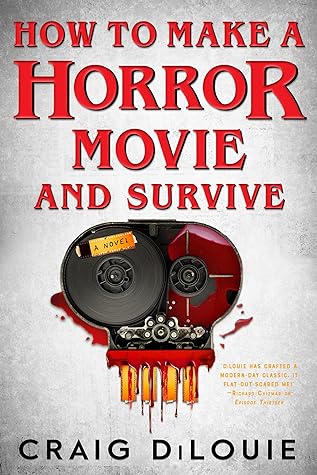
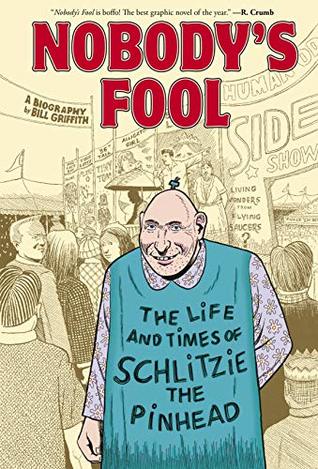
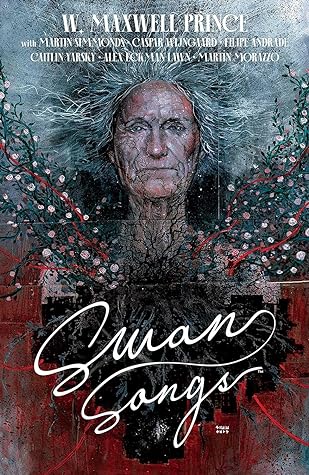
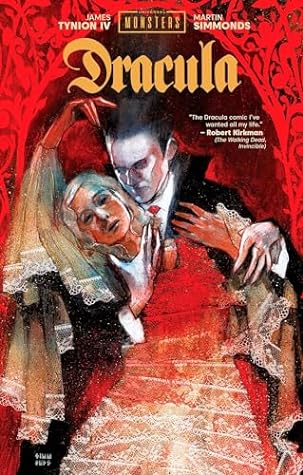
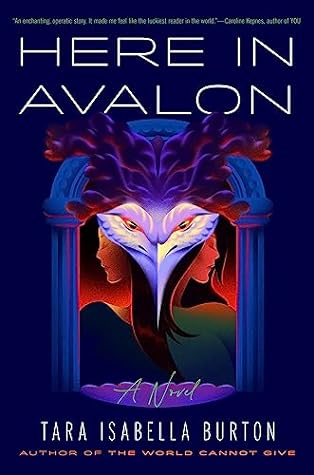
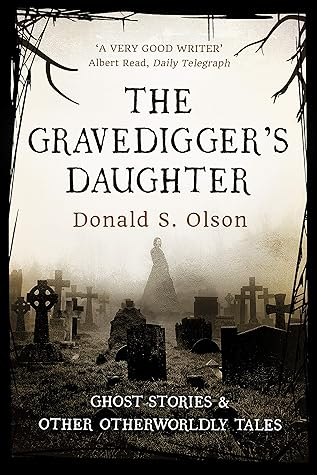
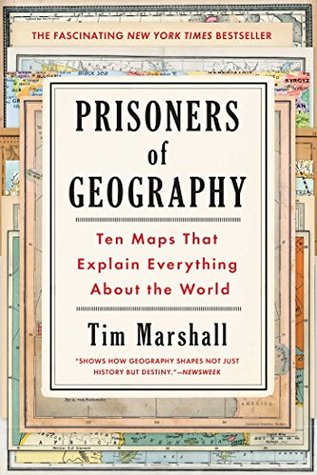
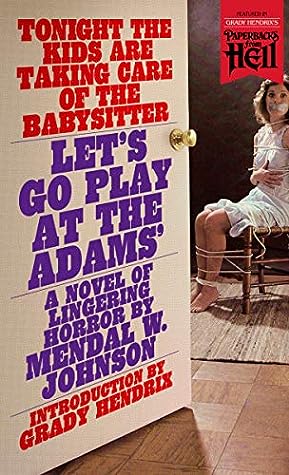
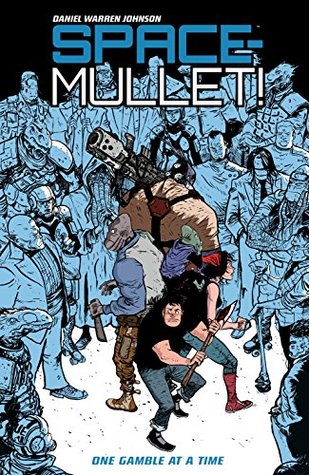
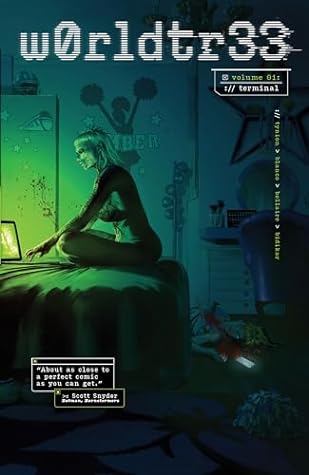
 RSS Feed
RSS Feed
